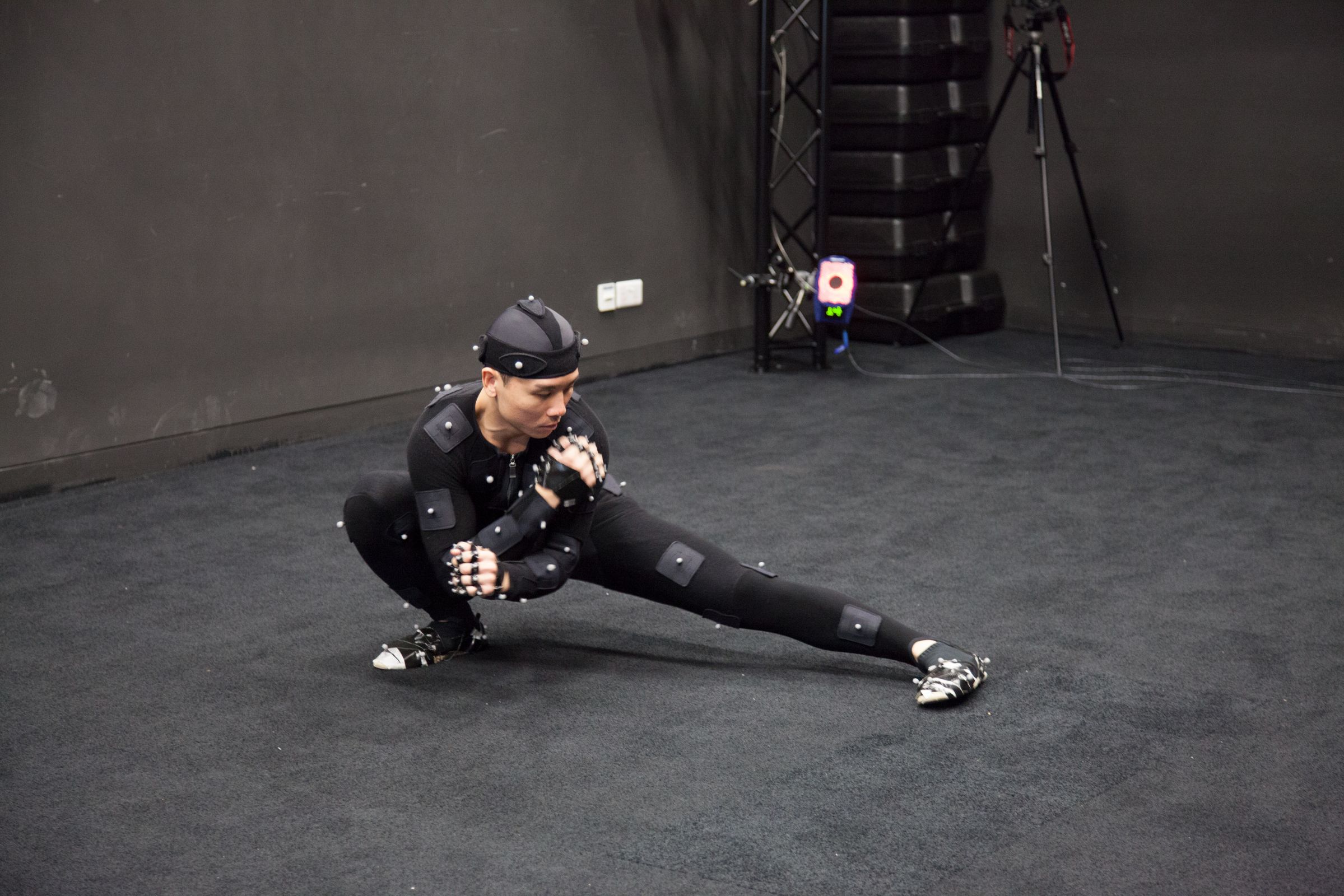Free entry
Kung Fu Motion, The Living Archive is the story of the dynamic traditions of Hong Kong’s martial arts, seen through the lens of advanced archival technologies. At the intersection of art, science and ritual practice, this experimental exhibition opens up new perspectives for our embodied engagement with intangible cultural heritage.
Kung Fu Motion examines strategies for encoding, retrieving and re-enacting intangible heritage in ways that allow these archives to be ‘alive’ in the present. The exhibition brings together historical materials with creative visualizations derived from advanced documentation processes including motion capture, motion-over-time analytics, 3D reconstruction, and panoramic video. These archival materials are re-interpreted and re-performed through the mediums of augmented virtual reality and interactive media art. This ’living archive’ utilizes new immersive and interactive display paradigms to perpetuate the performance of past Masters for future generations.
Kung Fu Motion derives from a longitudinal research project, the Hong Kong Martial Arts Living Archive (instigated in 2012). This ongoing research is a collaboration between the International Guoshu Association, City University of Hong Kong, and the Laboratory for Experimental Museology (eM+), Digital Humanities Institute, EPFL.
In mainland China, a significant portion of traditional martial arts have already vanished. Hong Kong remains a major center for Southern Chinese Kung Fu and is home to some of the most prominent martial artists in the world. However, rapid urban development, population growth, cultural transformation, and the aging of the masters are endangering these practices.
Kung Fu Motion examines strategies for encoding, retrieving and re-enacting this intangible heritage in ways that allow these archives to be ‘alive’ in the present
Professor Sarah Kenderdine, Director of eM+ and ArtLab
The documentation, reproduction and presentation of immaterial cultural forms poses significant theoretical and technological challenges. Ephemeral traditions require cultural scholars, technologists, artists and scientists to work with communities to develop new methods for sustaining and enlivening these cultural traditions. This interdisciplinary endeavor has become an ongoing focus for the Digital Humanities Institute, EPFL, in collaboration with collaborators and kung fu practitioners around the world.
Exhibition views
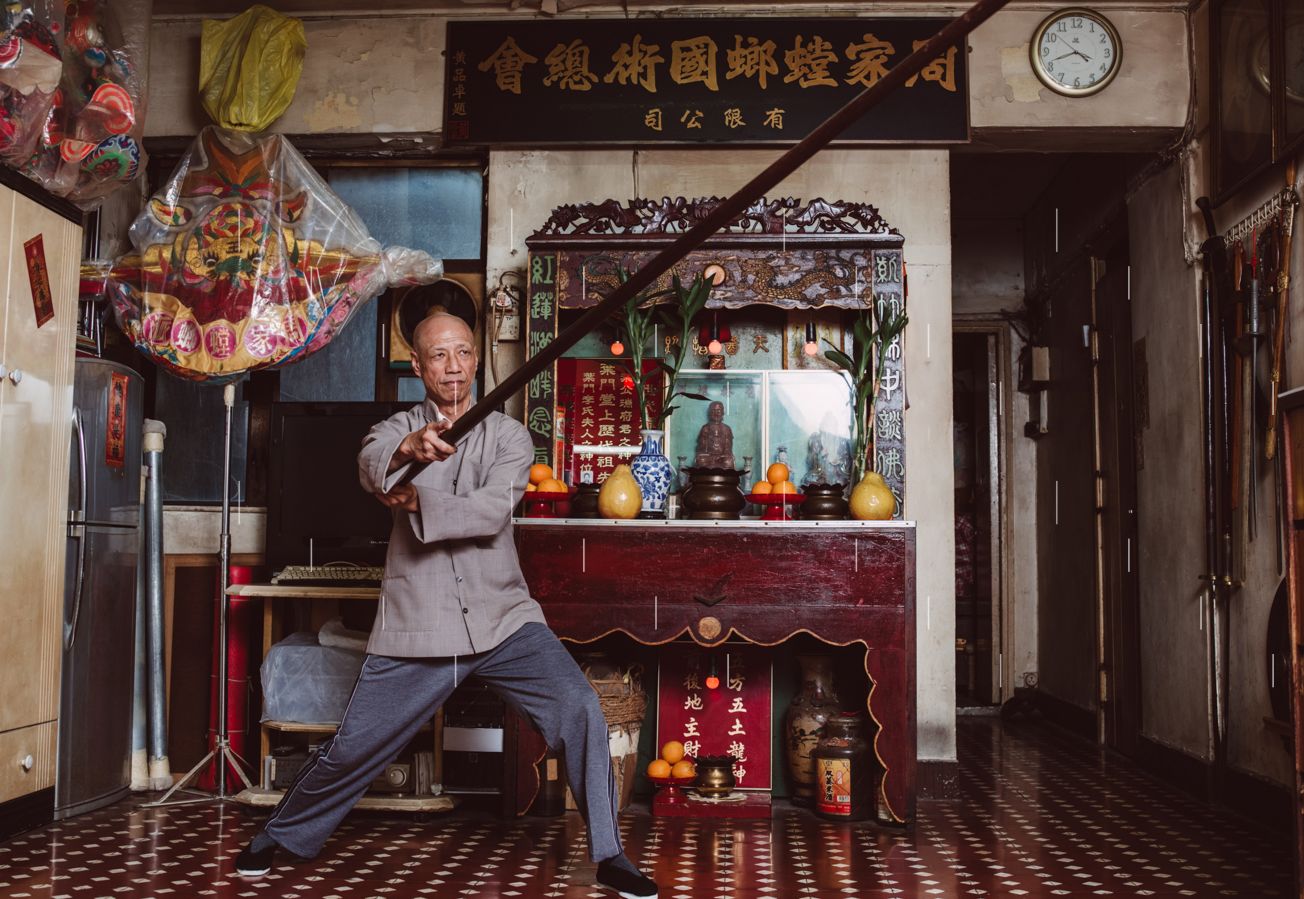
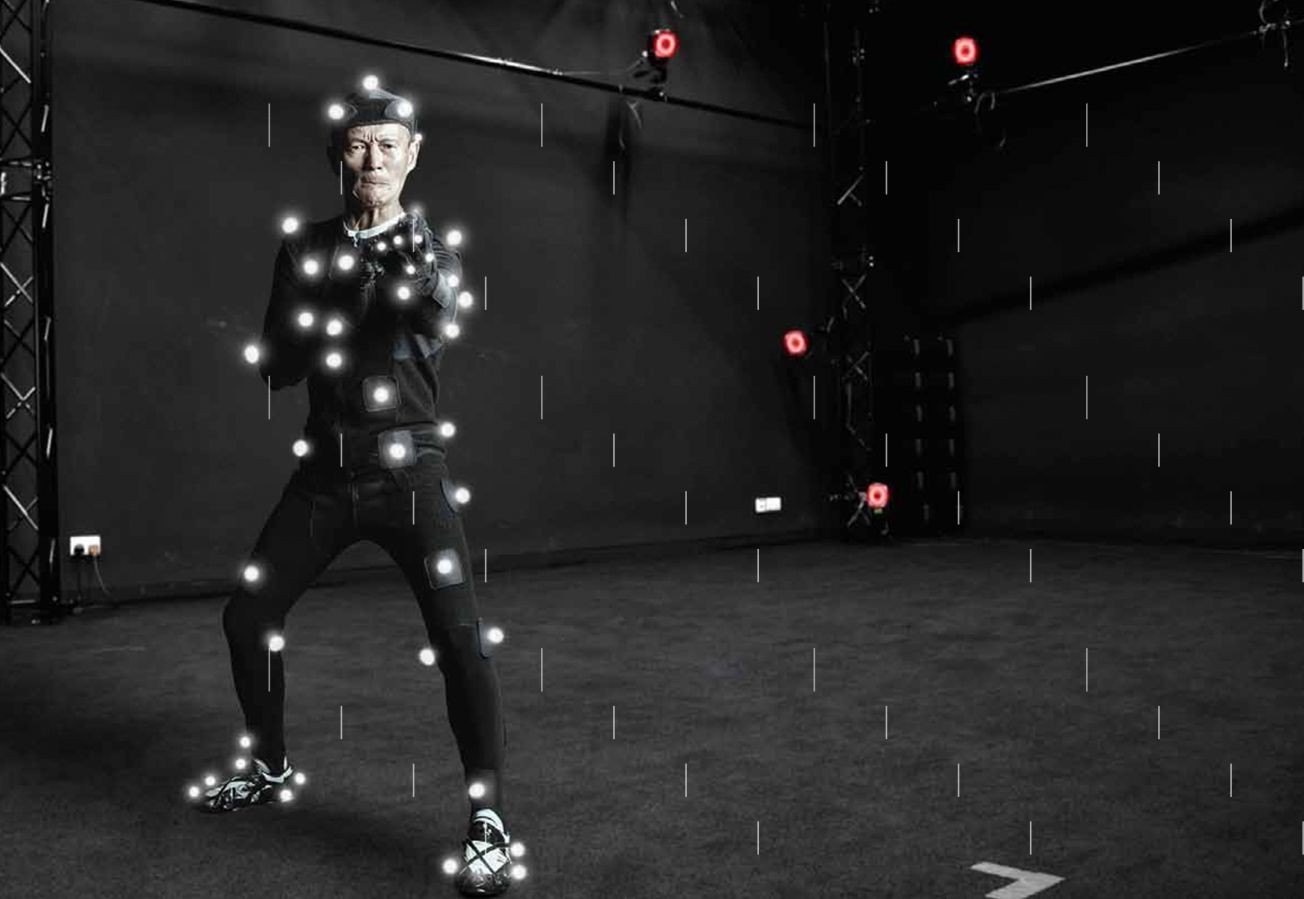
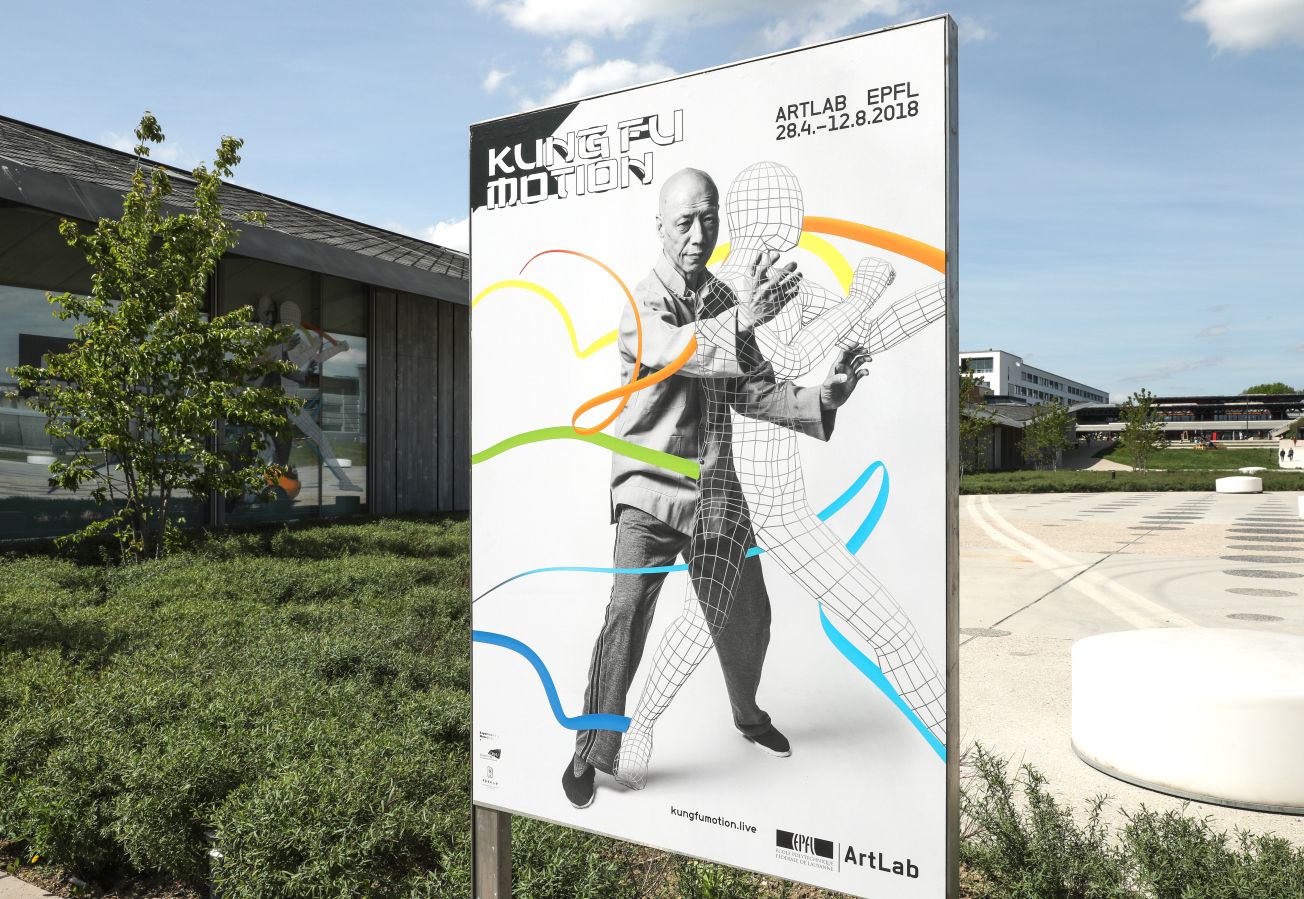
© EPFL - Alain Herzog
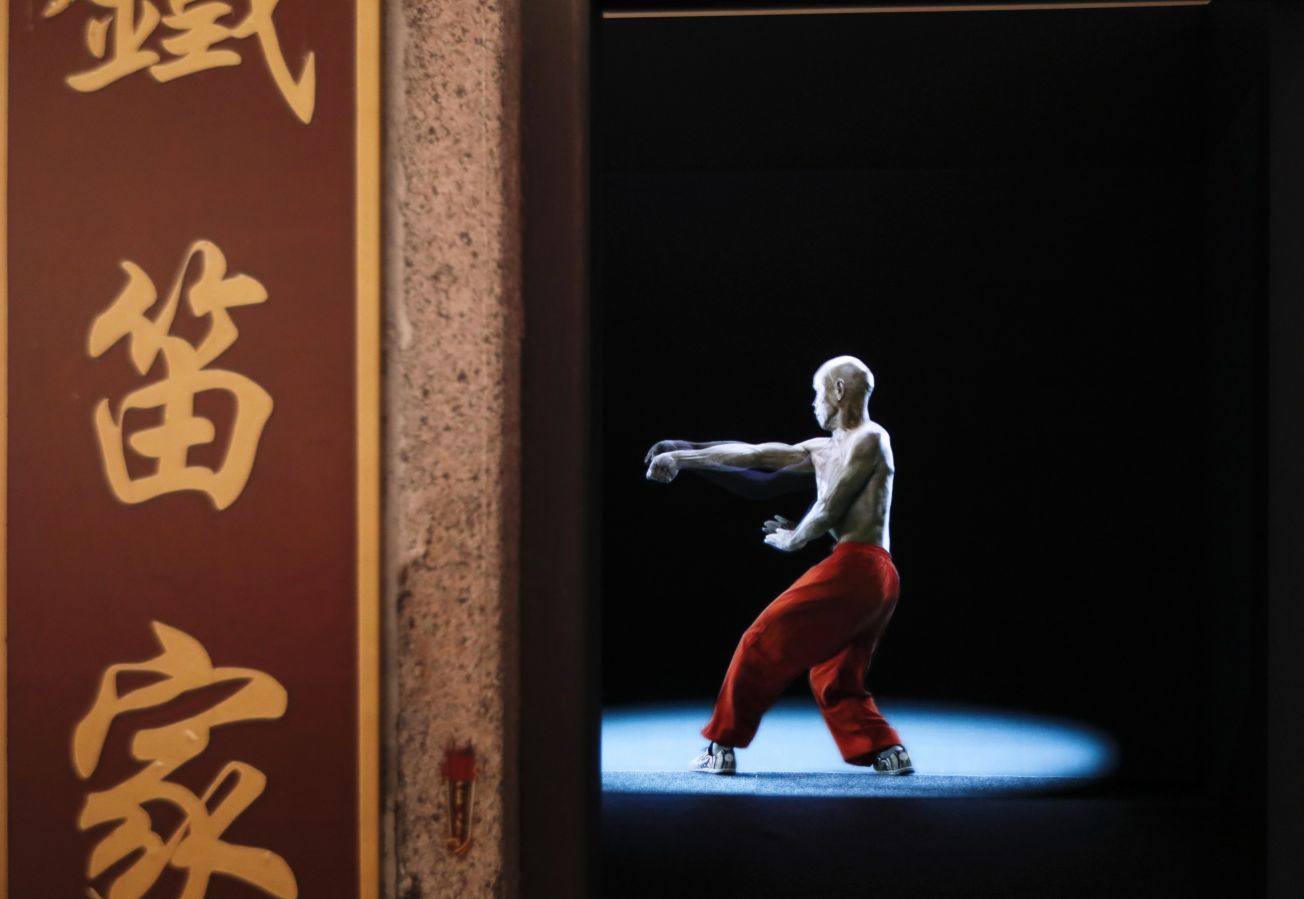
© EPFL - Alain Herzog
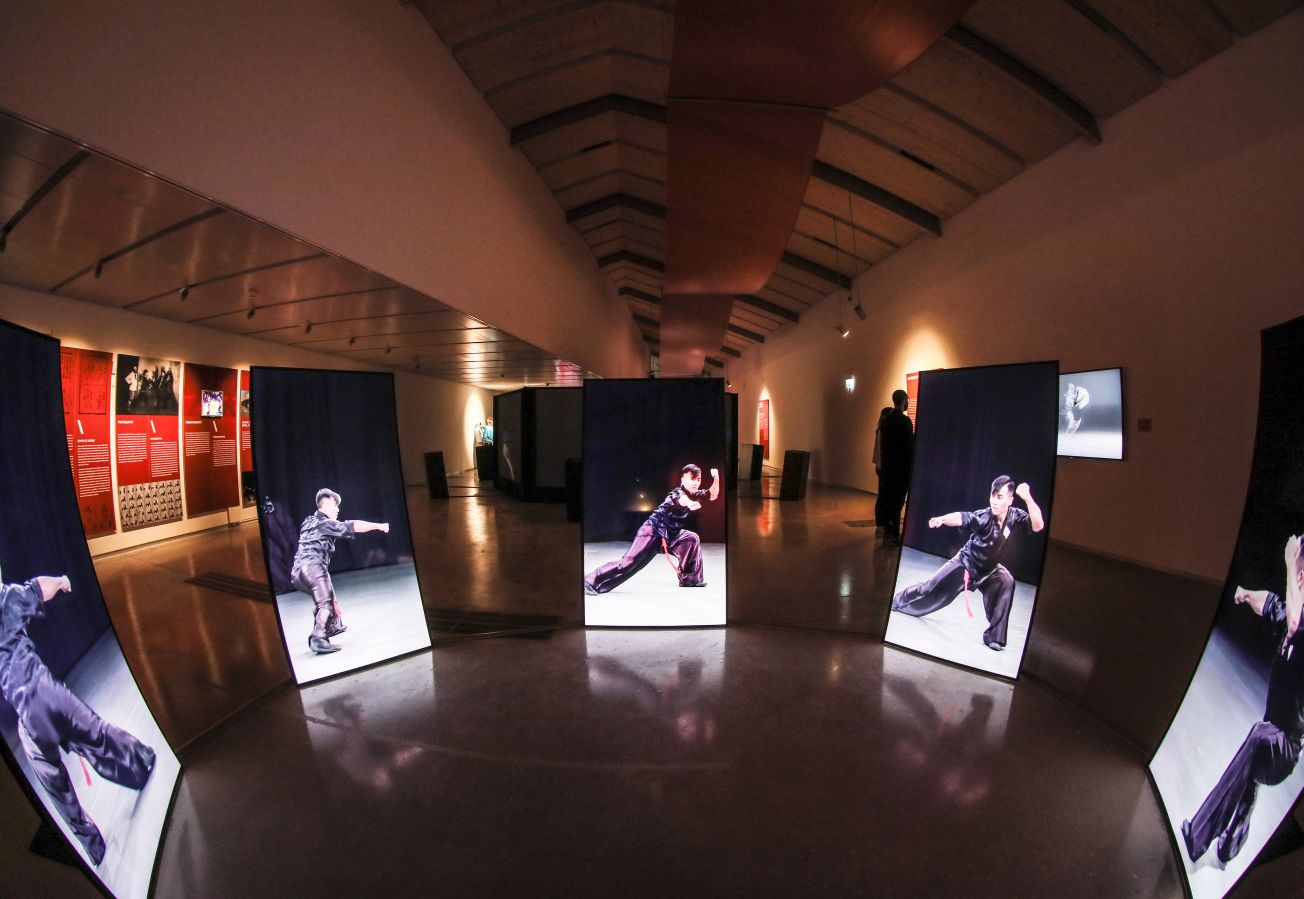
© EPFL - Alain Herzog
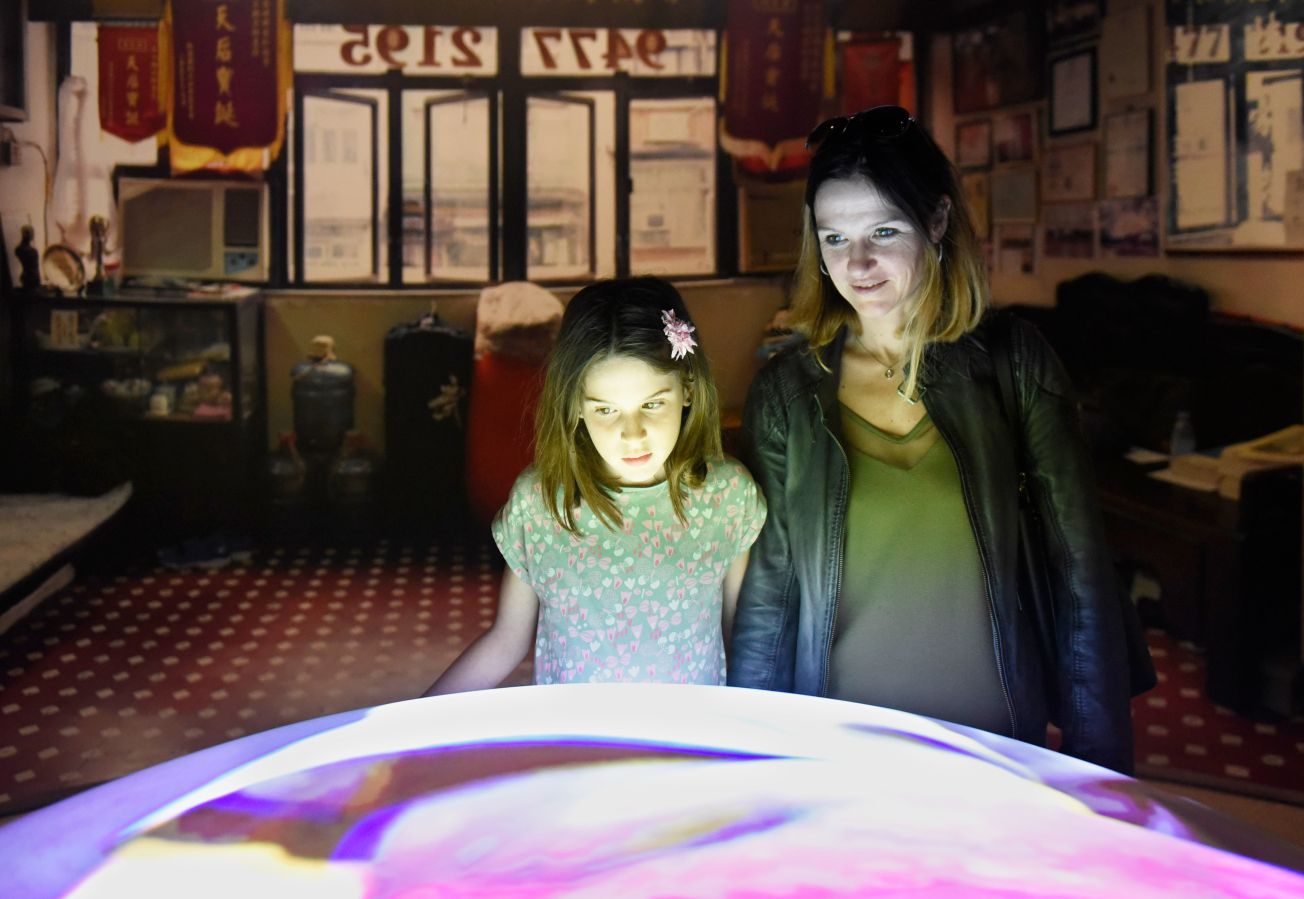
© EPFL - Alain Herzog
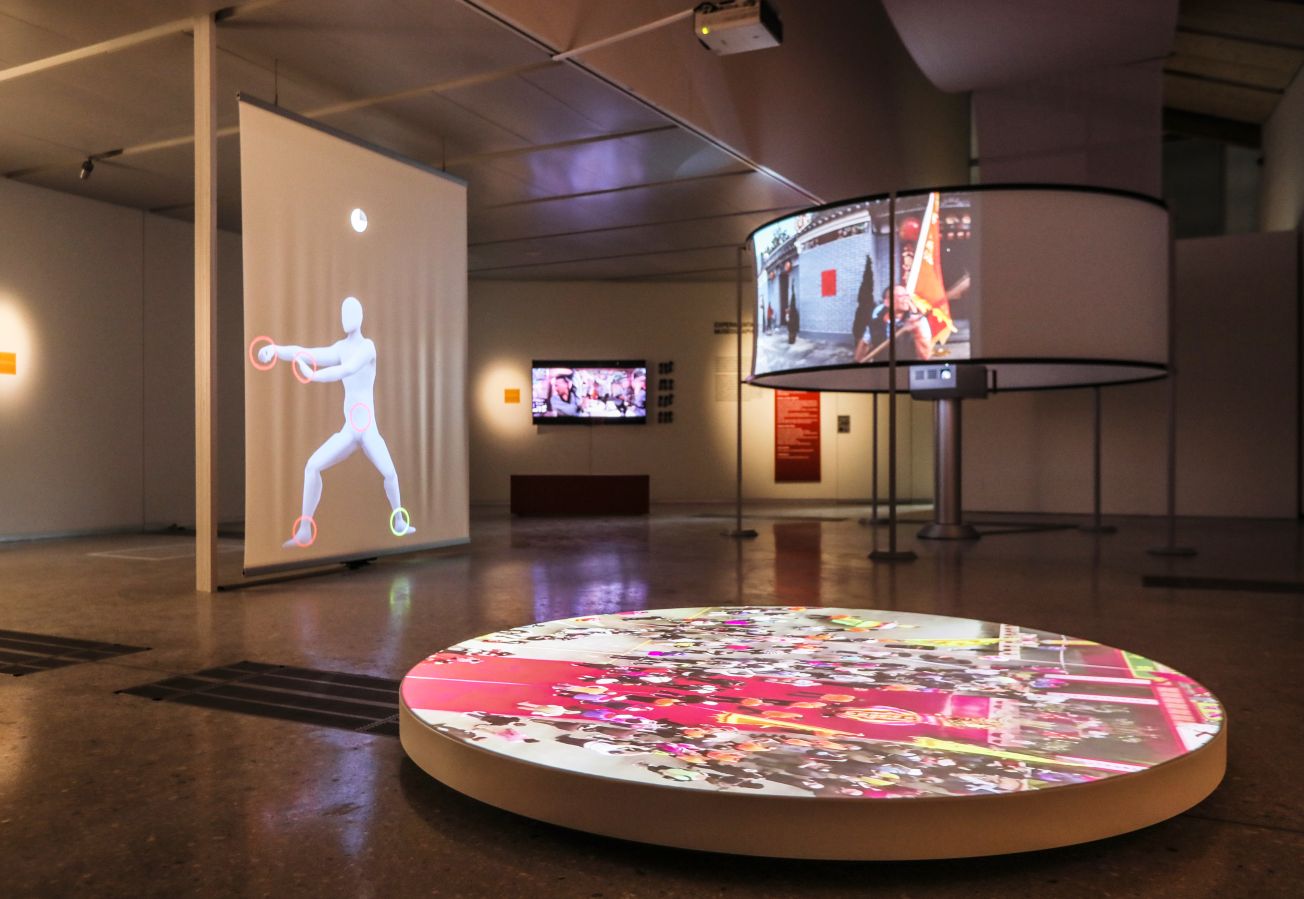
© EPFL - Alain Herzog
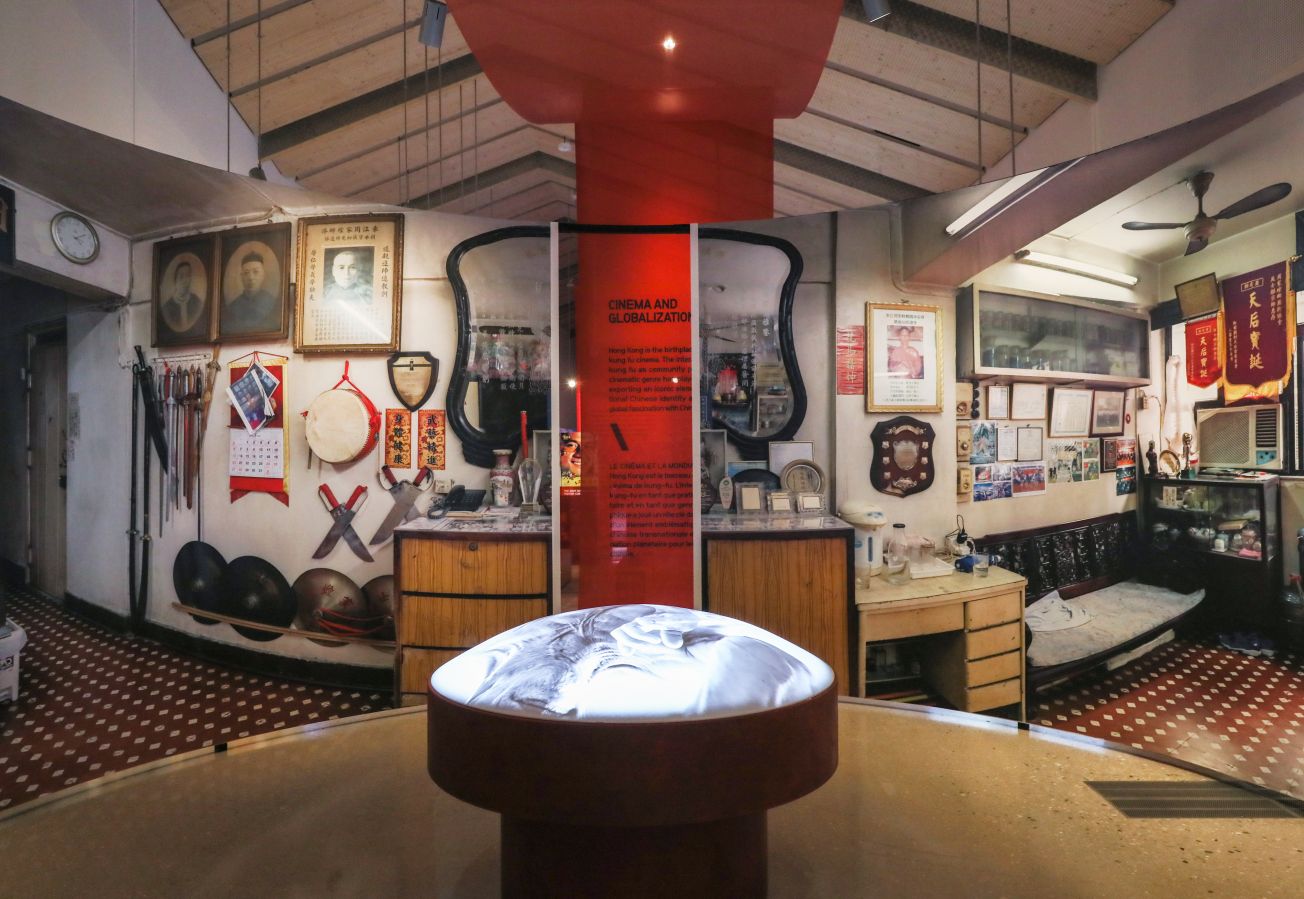
© EPFL - Alain Herzog
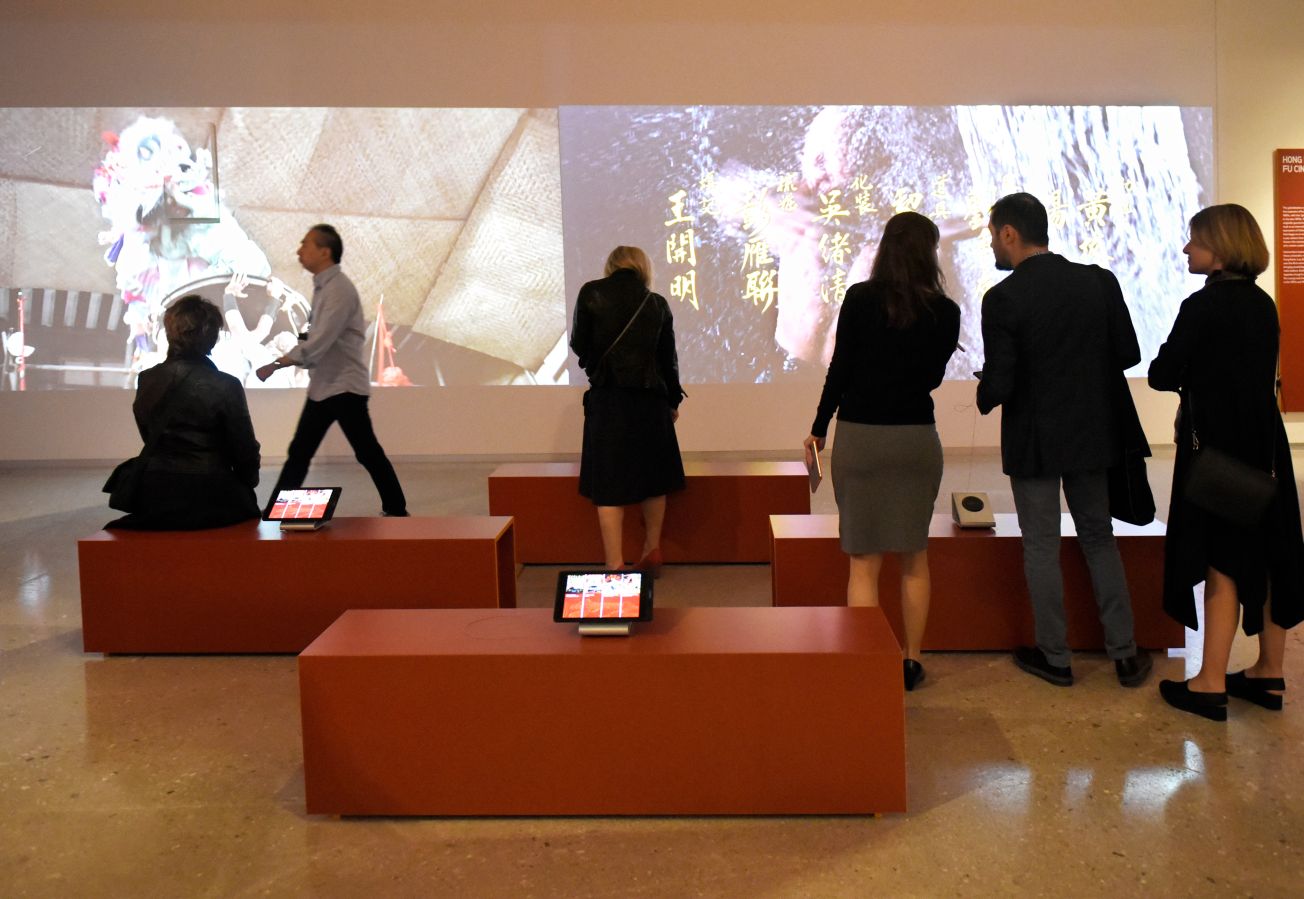
© EPFL - Alain Herzog
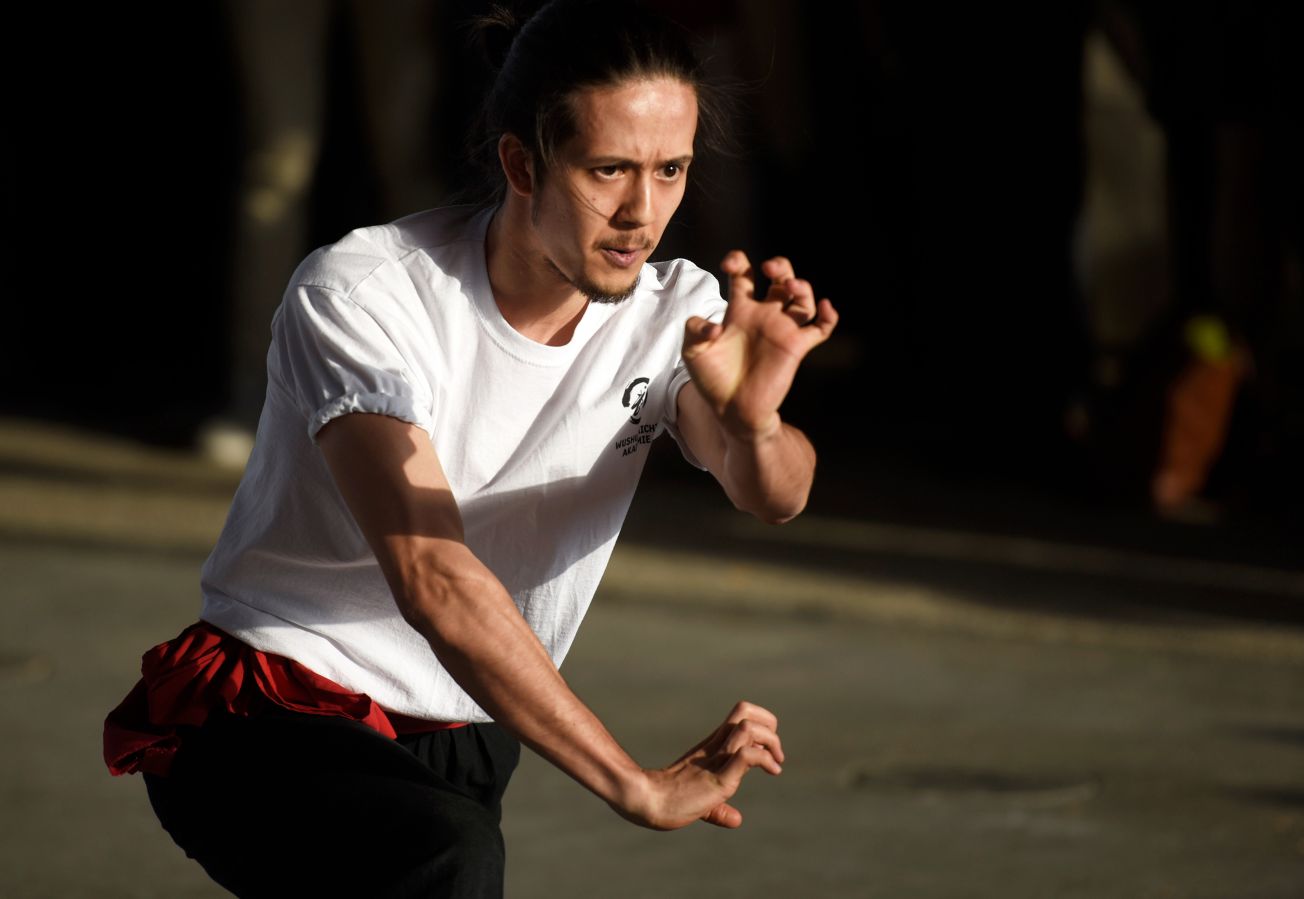
© EPFL - Alain Herzog
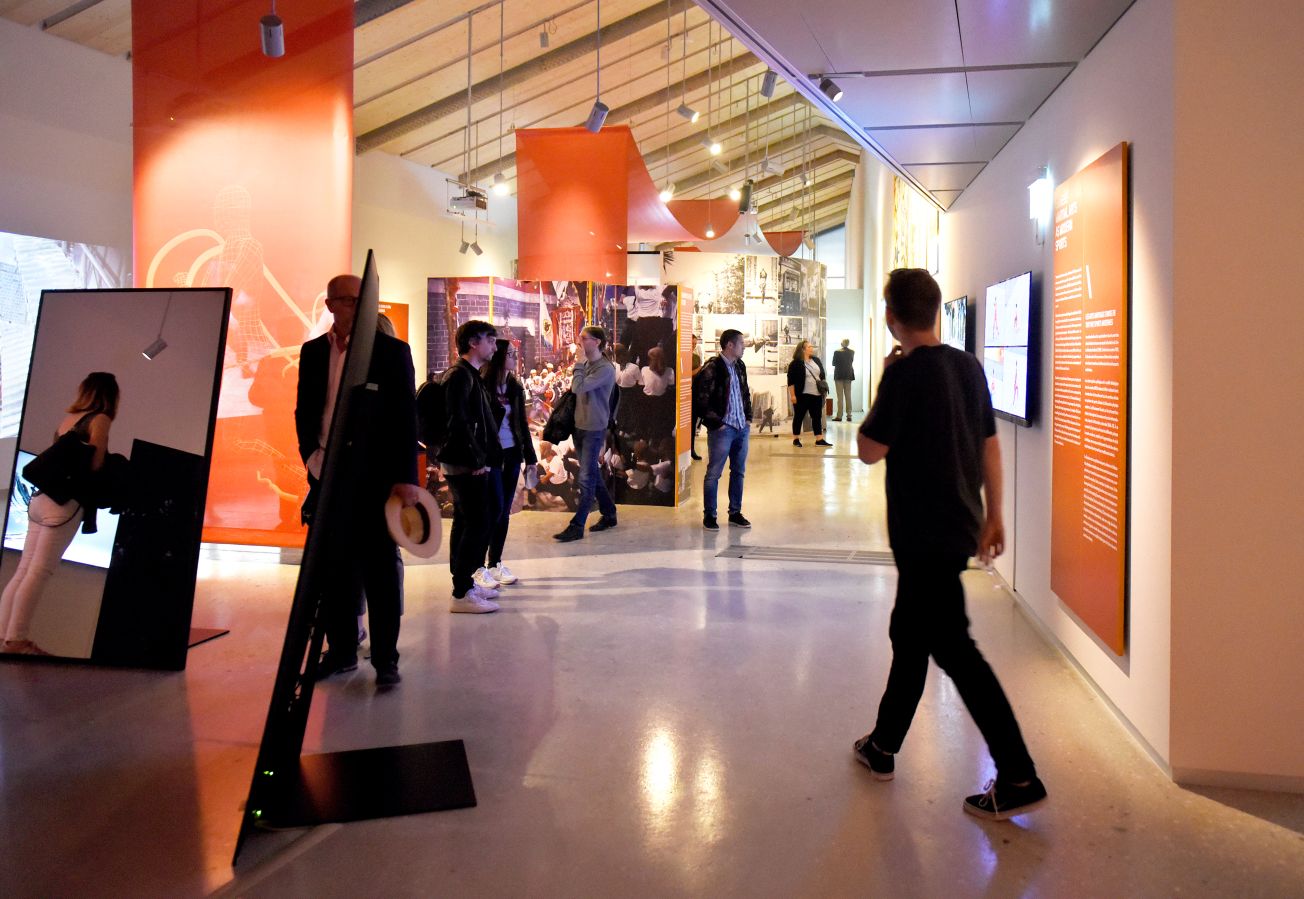
© EPFL - Alain Herzog
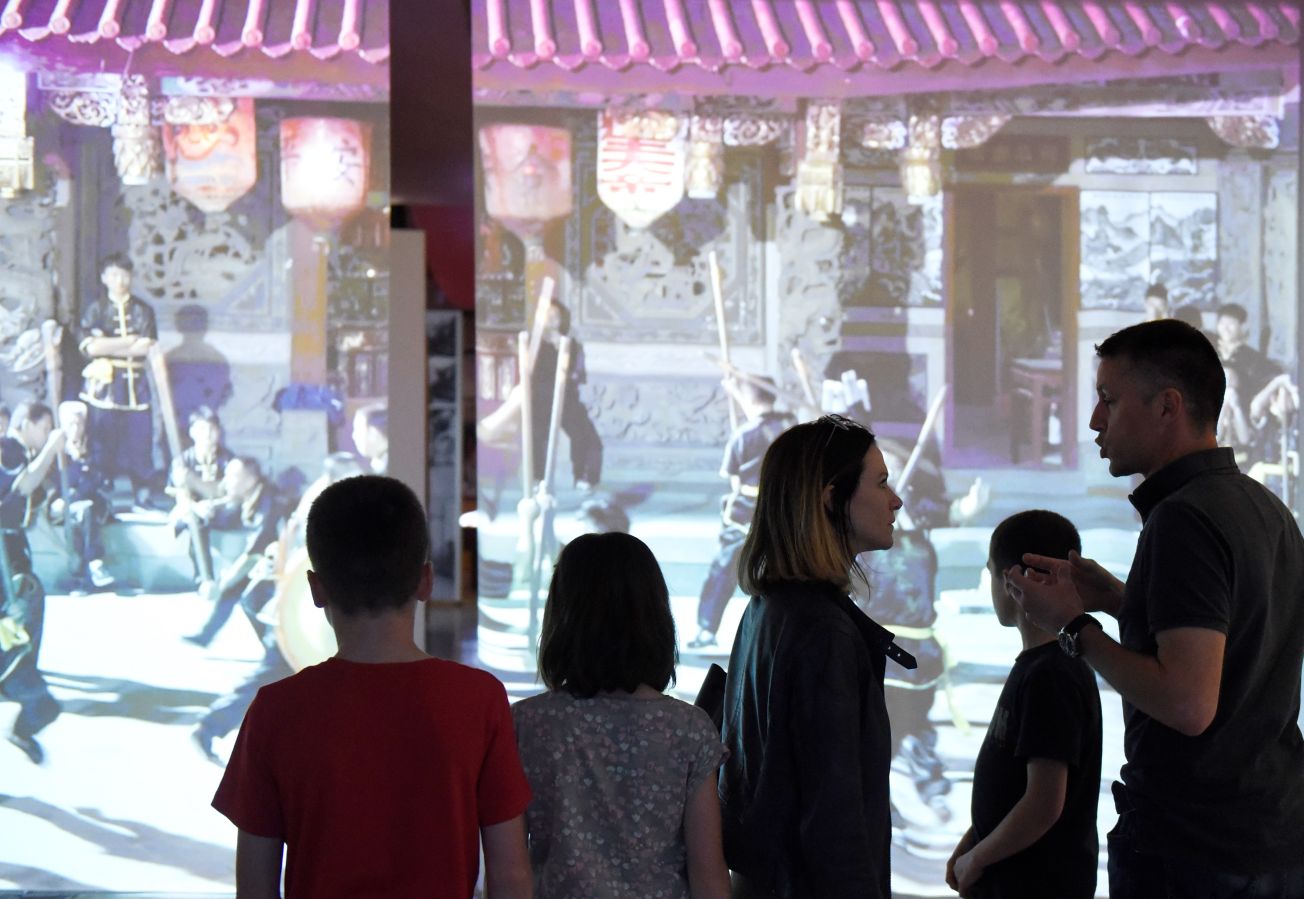
© EPFL - Alain Herzog
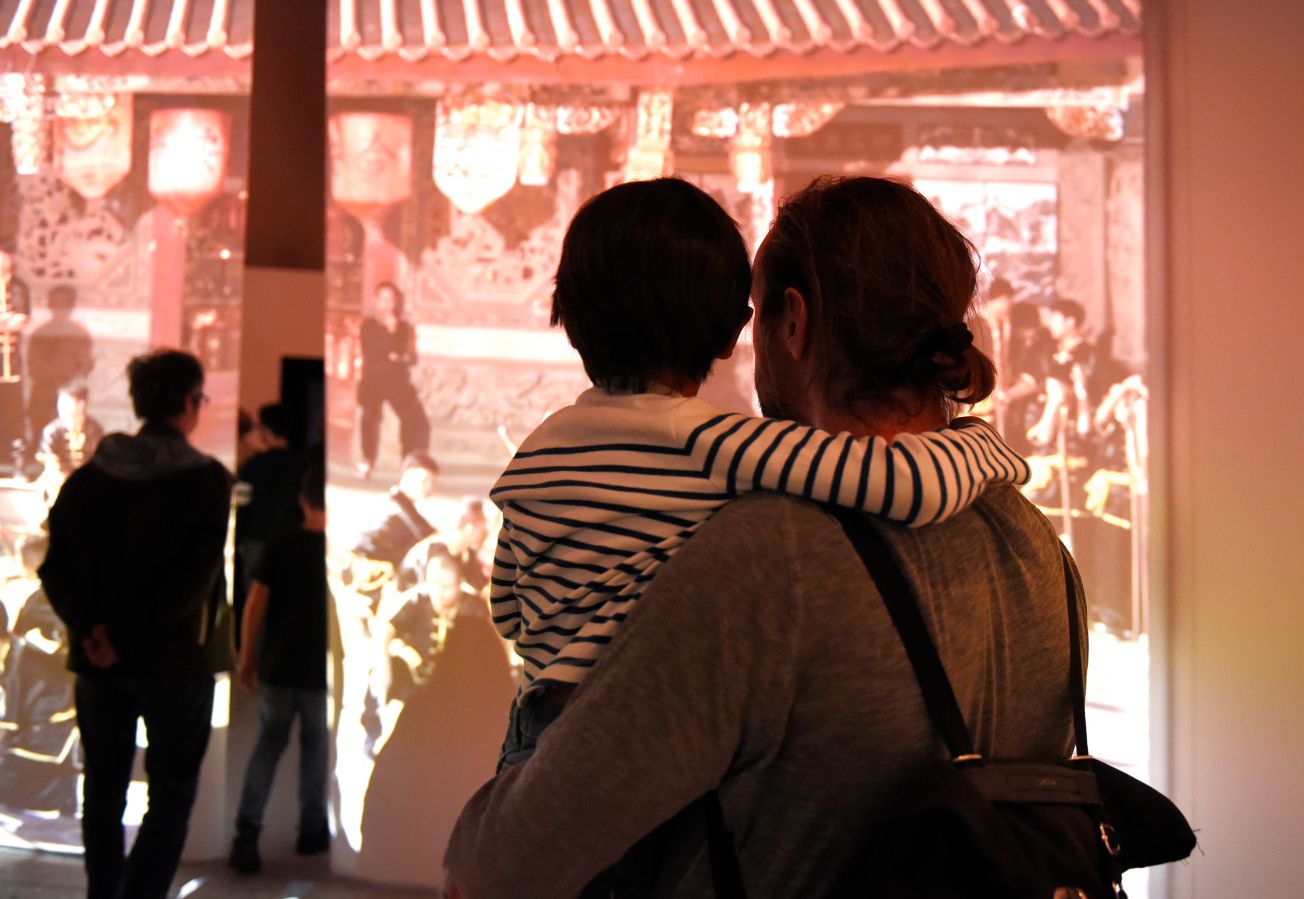
© EPFL - Alain Herzog
Exhibition as experiment
The exhibition brings historical materials together with creative visualisations derived from advanced documentation processes including motion capture, high speed, drone-based and panoramic video", says Kenderdine. "Archival materials are re-interpreted through motion over-time analytics and 3D reconstruction and re-performed through the mediums of augmented and virtual reality and media art. This living archive utilises new immersive and interactive display paradigms to perpetuate the performances of kung fu masters for future generations.
Kung Fu Motion is exploring the ‘future museum’ and is designed to spark the imagination of diverse audiences: students, designers and creators of virtual reality and future cinema technologies, families and children learning martial arts, sports scientists, scholars of cultural heritage and new museology and, all those interested in the Chinese culture.
Intersecting digital humanities
The digital humanities bring contemporary scientific practice into a dialogue with the most pressing cultural and societal concerns, thereby providing new tools to broaden our understanding. Digital humanities renew and reconfigure access to a multiplicity of cultural data, unleashing its potential for artists, humanists and scientists. As we enter the ‘post digital’ age, the former boundaries between art and science will actually dissolve into symbiosis.
EPFL’s commitment to this endeavour is unique in the world, training the next generation of scientists in the applications of new technologies to profound questions of humanity. ArtLab exhibitions and programs are one expression of this endeavour.
